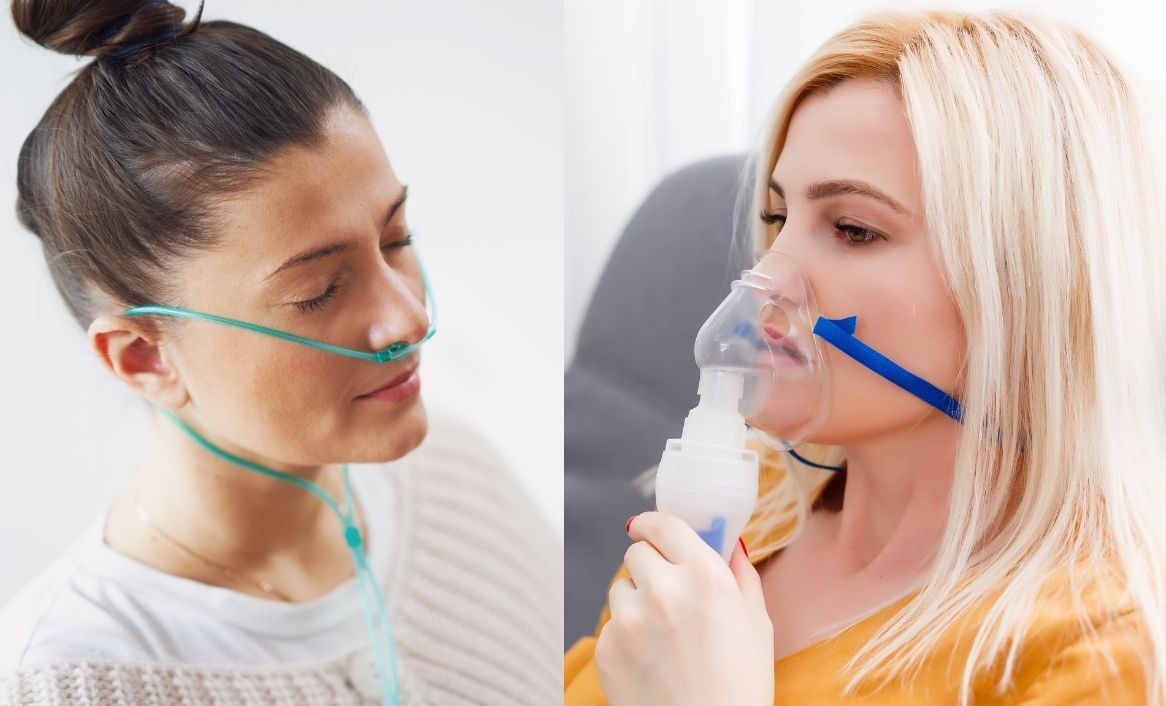In today’s fast-paced world, maintaining optimal health and wellness is more important than ever. While most people are familiar with oxygen therapy, the medical practice of inhaling oxygen to correct low oxygen levels, a new therapy is gaining attention for its unique health benefits: hydrogen inhalation.
Hydrogen therapy is no longer just a research curiosity; it is being embraced worldwide as a safe, natural, and effective method to improve cellular health, fight oxidative stress, and enhance overall wellness. Meanwhile, oxygen therapy remains a vital tool for patients with respiratory or cardiovascular conditions.
But what is the real difference between hydrogen inhalation vs oxygen inhalation, and which one is right for you? In this comprehensive guide, we’ll explore the science, benefits, and practical applications of both therapies, including how hydrogen and oxygen inhalation devices can help you take your health to the next level.
What Is Oxygen Inhalation Therapy?
Oxygen is essential for life. Every cell in your body requires oxygen to produce energy and function properly. When the oxygen supply drops, cells struggle, leading to symptoms such as fatigue, shortness of breath, and even organ damage.
Oxygen inhalation therapy is designed to increase the oxygen levels in your blood, helping to correct hypoxia (low oxygen levels) caused by various medical conditions.
Who Uses Oxygen Therapy?
- Patients with chronic obstructive pulmonary disease (COPD) or other severe lung diseases
- Individuals with heart failure or cardiac insufficiency
- Pregnant women during certain medical procedures
- Patients recovering from surgery or trauma
- Athletes seeking faster recovery in certain cases
How Oxygen Therapy Works
Oxygen therapy increases the oxygen content in alveoli, the tiny air sacs in your lungs, which in turn raises the oxygen concentration in your blood. This ensures that your body’s organs and tissues receive the oxygen they need to function optimally.
Potential Risks of Unsupervised Oxygen Use
While oxygen therapy is highly beneficial for patients with low blood oxygen, healthy individuals rarely need supplemental oxygen. Breathing high concentrations of oxygen unnecessarily can lead to side effects like:
- Headaches
- Nausea
- Oxygen toxicity in extreme cases
This is why oxygen therapy should always be supervised by medical professionals when used for non-emergency purposes. Oxygen inhalation devices are designed for safe, controlled oxygen delivery in clinical and wellness settings, ensuring proper flow rates and user safety.
What Is Hydrogen Inhalation Therapy?

Unlike oxygen, which primarily supports life by increasing blood oxygen levels, hydrogen inhalation therapy works at the cellular level to protect your body from damage caused by oxidative stress.
How Hydrogen Is Produced
Hydrogen gas (H₂) is typically produced via electrolysis of water, separating water molecules into hydrogen and oxygen. While the source is water, the inhaled substance is pure hydrogen gas, not water vapor.
Hydrogen therapy devices, like those from Hue Light, allow users to inhale hydrogen safely through a nasal cannula or mask. Some devices even provide a mixture of hydrogen and oxygen for combined benefits.
How Hydrogen Works in the Body
Hydrogen molecules are small enough to diffuse easily into cells, tissues, and even the nucleus. Once inside, they selectively neutralize harmful reactive oxygen species (ROS), particularly hydroxyl radicals, which are a major contributor to cellular aging, inflammation, and chronic disease.
Key Benefits of Hydrogen Inhalation Include:
- Antioxidant effects: Reduces oxidative stress and cellular damage
- Anti-inflammatory effects: Helps manage chronic inflammation in tissues
- Anti-apoptotic effects: Protects cells from programmed cell death
- Supports metabolic health: Improves lipid metabolism and blood sugar regulation
- Enhances recovery: Supports energy production and reduces fatigue
Unlike oxygen therapy, hydrogen inhalation is safe for healthy individuals and can be used daily for wellness, recovery, and long-term health maintenance.
Related Article: Benefits of Hydrogen Inhalation Therapy
Hydrogen vs. Oxygen: How They Work Differently
To clearly understand the difference, let’s compare hydrogen and oxygen inhalation side by side:
| Feature | Hydrogen Inhalation | Oxygen Inhalation |
| Gas Type | Molecular Hydrogen (H₂) | Oxygen (O₂) |
| Primary Role | Neutralizes harmful free radicals; protects cells | Increases oxygen in blood; corrects hypoxia |
| Health Focus | Anti-aging, wellness, and chronic condition support | Life support for respiratory/cardiovascular conditions |
| Typical Users | Anyone seeking wellness, recovery, or chronic disease support | Patients with low oxygen or serious medical conditions |
| Safety | Extremely safe; almost no toxicity | High-flow oxygen can cause side effects if misused |
| Source | Produced from water electrolysis | Extracted from air or oxygen tanks |
In summary:
- Oxygen therapy sustains life — It keeps your organs and tissues oxygenated.
- Hydrogen therapy protects life — It repairs and safeguards your cells from damage caused by oxidative stress.
When Should You Use Hydrogen or Oxygen?
Oxygen Therapy
- Recommended only for individuals with low blood oxygen or medical conditions affecting lung or heart function.
- Used under supervision in hospitals, clinics, or at home with a prescription.
- Not suitable for daily use in healthy people; overuse may lead to oxygen toxicity.
Hydrogen Therapy
- Safe for everyone, including healthy individuals.
- Can be used daily to enhance wellness, reduce fatigue, and support cellular repair.
- Especially useful for individuals experiencing:
- Chronic inflammation
- Oxidative stress from lifestyle factors (smoking, poor diet, environmental pollution)
- Aging-related fatigue
- Recovery after exercise or illness
Hydrogen inhalation machines allow users to gradually increase inhalation duration and flow, ensuring safe and effective therapy for individual needs.
Scientific Evidence Supporting Hydrogen Therapy
Hydrogen therapy has been extensively researched in both preclinical and clinical studies, showing promising results across a range of chronic diseases and physiological systems.
1. Chronic Kidney Disease (CKD)
Hydrogen therapy has shown promise in protecting kidney tissue and improving metabolic balance in early studies. According to a 2022 review, molecular hydrogen helps reduce oxidative stress, microinflammation, and cell death in chronic kidney disease. These mechanisms suggest potential benefits for maintaining kidney function, although large-scale clinical trials are still required to confirm their effectiveness.
2. Anti-Inflammatory Effects
Hydrogen acts as a selective antioxidant that neutralizes harmful hydroxyl radicals (•OH) and reduces the expression of inflammatory cytokines such as TNF-α and IL-6. This effect helps control chronic inflammation and supports tissue recovery across multiple organs, including the liver, heart, and brain.
Reference: Clinical Use and Treatment Mechanism of Molecular Hydrogen
3. Neuroprotective Effects
Several preclinical and early clinical studies have found that hydrogen therapy can protect neurons from oxidative damage and improve neurological recovery after stroke or traumatic brain injury. The 2023 review on neurological diseases suggests that hydrogen reduces oxidative stress and inflammation, thereby improving outcomes in brain-related disorders.
4. Metabolic and Cardiovascular Health
A 2024 clinical study reported that hydrogen inhalation significantly lowered blood pressure in adults with hypertension and improved cardiovascular oxidative balance. Additional research indicates that hydrogen may support lipid metabolism and glucose regulation, contributing to better heart and metabolic health.
Summary:
Scientific research supports hydrogen’s antioxidant, anti-inflammatory, and cytoprotective properties, with potential benefits for kidney, brain, heart, and metabolic health. Current evidence is encouraging, but more robust human trials are needed to establish standardized treatment protocols and confirm long-term therapeutic benefits.
Review: Molecular Hydrogen Therapy—A Review on Clinical Studies and Outcomes (2023)
Benefits of Combining Hydrogen and Oxygen Therapy
Some advanced inhalation devices are designed to deliver a mixture of both hydrogen and oxygen gases simultaneously. This combination brings together the best of both therapies, offering a more comprehensive approach to wellness and recovery.
- Oxygen: Helps maintain optimal oxygen saturation in the blood, supports cellular respiration, and enhances overall energy levels. It plays a vital role in improving stamina, concentration, and tissue repair.
- Hydrogen: Acts as a powerful antioxidant that neutralizes harmful free radicals, reduces oxidative stress, and alleviates inflammation throughout the body.
When used together, hydrogen and oxygen therapies can work synergistically to promote faster recovery, improve circulation, and support general well-being. This combination is particularly beneficial in wellness centers, physical therapy programs, and post-illness rehabilitation settings.
How to Use Hydrogen and Oxygen Safely
Hydrogen Inhalation Tips
- Start with short sessions (10–20 minutes) at low flow.
- Gradually increase duration as your body adapts.
- Consistency is key. Daily inhalation provides the best long-term benefits.
Oxygen Inhalation Tips
- Only use under medical supervision if you have respiratory or cardiovascular conditions.
- Avoid prolonged high-flow oxygen unless prescribed by a doctor.
Choosing the Right Hue Light Device

We offer a state-of-the-art Hydrogen Inhalation Machine designed to deliver safe, effective, and convenient hydrogen therapy.
Hydrogen Inhalation Machine
- Delivers high-purity hydrogen gas for optimal health benefits.
- Features adjustable flow rates, making it suitable for both beginners and regular users.
- Compact and portable design perfect for use at home, in clinics, or wellness centers.
- Provides antioxidant, anti-inflammatory, and cellular protection benefits to support overall well-being.
All devices are certified, safe, and easy to use, ensuring you experience the full potential of hydrogen therapy in the most comfortable and reliable way possible.
Conclusion: Choosing the Right Therapy for You
Hydrogen and oxygen inhalation therapies serve distinct physiological and biochemical roles in maintaining human health. Oxygen therapy is clinically indicated for individuals with hypoxemia or respiratory insufficiency, ensuring adequate oxygen delivery to vital organs and tissues. Hydrogen therapy, in contrast, exerts therapeutic effects through its selective antioxidant properties, mitigating oxidative stress, inflammation, and mitochondrial dysfunction that contribute to cellular aging and disease progression.
For healthy individuals, regular hydrogen inhalation may support metabolic balance, enhance recovery, and promote cellular homeostasis. For patients with low blood oxygen or compromised pulmonary function, oxygen therapy remains an essential medical intervention. A clear understanding of both therapies enables appropriate application, optimizing respiratory efficiency, reducing oxidative damage, and improving overall physiological resilience.
With Hue Light’s advanced hydrogen inhalation Machines, users can safely incorporate molecular hydrogen into their daily wellness or therapeutic regimen to support long-term health outcomes.
Start your journey to better health today with Hue Light’s innovative Hydrogen inhalation devices! Contact Us Now.













